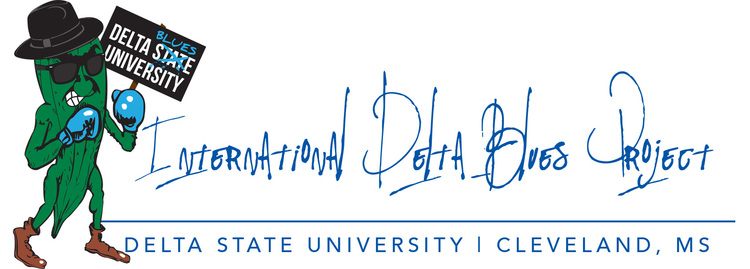Welcome to the “Blues Notes” where we’ll be highlighting events, activities and people that illuminate the richness of culture in the Delta region. We’ll touch on both general topics as well as specific events, such as the annual B.B. King Homecoming celebration in Indianola, which takes place this Saturday.
King died last May at 89 years old, but the event is continuing as a celebration of his life, singular career and commitment to his home state. The free event takes place on the grounds of the B.B. King Museum and Delta Cultural Center, which opened in 1998 and is now also the site of King’s final resting place.
The festival starts at 10:00 a.m., and there’s music on two stages through about 8:00 p.m. This year’s headliner is Keb Mo’, and also featured are Teeny Tucker, the B.B. King Museum Allstars, the Big Time Rhythm and Blues Band, Steve Azar & the King’s Men, and Jake & the Pearl Street Jumpers.
After the festival King traditionally played a private show at the historic Club Ebony, and this year the show, which begins at 8:00 p.m.,, will feature guitarist/vocalist Lil Ray Neal with former King band members Reggie Richards (bass), Herman Jackson (drums) and Walter King (sax), with a special appearance by Steve Azar. Tickets are $50/$100.
King’s death was heartbreaking for his many fans around the world, and it hit particularly hard in Indianola, his proclaimed “hometown.” King was born in 1925 in tiny Berclair, about twenty miles to the east, but he moved to Indianola in his teens, and it was there that he played in a gospel group, found a job driving a tractor, got married, and, most importantly, took up the blues.
He left Indianola for Memphis in the late ‘40s, and by the early ‘50s King was a national star. He would return home to Indianola to perform on occasion – his second wife, Sue Evans, was the daughter of the owner of the Club Ebony! – but his annual “homecomings” wouldn't become regular until the 1980s.
King first began returning to Mississippi on a regular basis in 1973 with the creation of the Medgar Evers Homecoming celebration, which paid tribute to the life of the Civil Rights martyr, and King would remain the celebration’s main attraction into the 2000s. He was more ambivalent about returning to Indianola, though, because of his perceived notion that his mostly African American band wasn’t getting a full welcome by the community.
Local fans organized the first homecoming event in the late ‘70s, and it took on a regular structure in 1986, when the Chamber of Commerce took over the event and King’s return was celebrated in tandem with Indianola’s centennial. Held on a Friday in early June, the daytime event concluded with a performance by King, whose lighthearted approach to the show was epitomized by a dance contest featuring local kids.
King would spend the early part of the evening having dinner with old friends, and often would hit the stage at Club Ebony at midnight or later. After the show King would generously give his time to admirers. By the early morning he was on his bus southbound to participate in several days of events associated with the Medgar Evers celebration.
In his last years King cut back on the time he committed to his annual return, and in 2014 the Indianola Homecoming was billed as his “last time.” It was a bittersweet performance, and while his advanced age was evident there were moments where he demonstrated clearly why he was dubbed the king of the blues.
During the 2015 International Conference on the Blues, in partnership with The Delta Center for Culture and Learning and the International Delta Blues Project, the Mississippi Blues Commission proclaimed B.B. King as “Mississippi’s Secretary of the State of the Blues.” The Commission gave a framed proclamation signed by all of the living governors of the state of Mississippi to representatives from the B.B. King Museum and Delta Interpretive Center. For more info, see http://www.internationaldeltabluesproject.com/news1/2016/5/5/mississippi-blues-commission-names-bb-king-secretary-of-state-of-the-blues.


